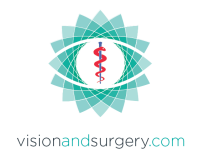Retinal Vein Occlusion
Occlusion of retinal vein is not a very uncommon condition in the elderly age group. Blood flow exiting the back of the eye via retinal veins is impeded due to age related thickening and hardening of the blood vessel wall. This results in stagnation of flow, rupture of tiny blood vessels and leakage of fluid and blood in the retina.
In central retinal occlusion (CRVO), the entire circulation is affected. Hence, its effect on vision can be more deleterious. On the other hand, partial blockage or branch retinal vein occlusion (BRVO) is a relatively less severe condition with variable effect on vision.
What is the treatment of CRVO/ BRVO?
Treatment of retinal vein occlusion depends on its severity and effect on the retina. Laser photocoagulation and development of new treatment modalities such as steroid implants (Ozurdex) amd anti-VEGF therapy (Lucentis) have improved the outcome of this condition which otherwise potentially debilitating condition. Not all treatments mentioned here are available under the NHS.
Can CVRVO or BRVO be prevented?
Retinal vein occlusion is associated with generalised cardio-vascular risk factors such as smoking, high blood pressure, lack of exercise, high cholesterol and diabetes. A healthy lifestyle goes a long way in preventing this condition.
In some cases particularly in the younger age group, systemic causes of abnormal blood composition should excluded.




